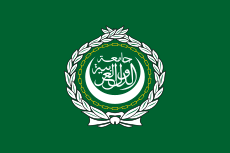Beji Caid Essebsi
| Beji Caid Essebsi الباجي قائد السبسي | |
|---|---|
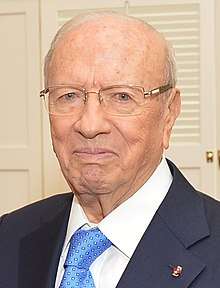 | |
| 5th President of Tunisia | |
|
Assumed office 31 December 2014 | |
| Prime Minister |
Mehdi Jomaa Habib Essid Youssef Chahed |
| Preceded by | Moncef Marzouki |
| 18th Prime Minister of Tunisia | |
|
In office 27 February 2011 – 24 December 2011 | |
| President |
Fouad Mebazaa (Acting) Moncef Marzouki |
| Preceded by | Mohamed Ghannouchi |
| Succeeded by | Hamadi Jebali (as Head of Government) |
| President of Chamber of Deputies | |
|
In office 14 March 1990 – 9 October 1991 | |
| President | Zine El Abidine Ben Ali |
| Preceded by | Slaheddine Baly |
| Succeeded by | Habib Boularès |
| Minister of Foreign Affairs | |
|
In office 15 April 1981 – 15 September 1986 | |
| Prime Minister |
Mohammed Mzali Rachid Sfar |
| Preceded by | Hassen Belkhodja |
| Succeeded by | Hédi Mabrouk |
| Personal details | |
| Born |
Mohamed Beji Caid Essebsi 29 November 1926 Sidi Bou Said, Tunisia |
| Political party |
Neo Destour/PSD/RCD (1941–1994) Independent (2011–2012) Call of Tunisia (Nidaa Tounes) (2012–present) |
| Spouse(s) | Chadlia Saïda Farhat |
| Children | 4 |
| Signature |
 |
Mohamed Beji Caid Essebsi (or es-Sebsi, Arabic: محمد الباجي قائد السبسي, Muhammad al-Bājī Qā’id as-Sibsī; ![]()
Essebsi is the founder of the Nidaa Tounes political party, which won a plurality in the 2014 parliamentary election. In December 2014, he won the first regular presidential election following the Tunisian Revolution, becoming Tunisia's first freely and directly elected president.
Personal life
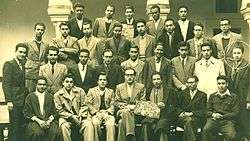
Born in Sidi Bou Said to a family from the Tunisian landed élite, he is a great-grandson of Ismail Caïd Essebsi, a Sardinian kidnapped by Tunisian corsairs along the coasts of Sardinia at the beginning of the nineteenth century who became a mamluk leader raised with the ruling family after converting to Islam. He was later recognized as a free man when he became an important member of the government.[4][5]
He has two sons and two daughters.
Essebsi is currently 91 years old and is the third-oldest current head of state after Elizabeth II of the Commonwealth realms, thus making him the 2nd oldest democratically elected head of state in the world after Tun Mahathir Mohamad.
Political career
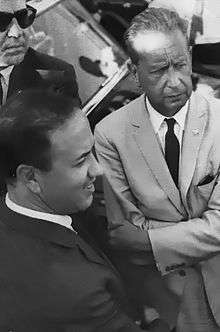
Essebsi's first involvement in politics came in 1941, when he joined the Neo Destour youth organization in Hammam-Lif.[6][7] He studied law in Paris and became a lawyer in 1952 at the Tunis bar, where he began his career with the defence of Neo Destour activists. He was a follower of Tunisia's post-independence leader Habib Bourguiba. He then joined Bourguiba as an adviser following the country's independence from France in 1956.
From 1957 to 1971, he performed various functions such as director of the regional administration, general director of the Sûreté nationale, Interior Minister from 5 July 1965 to 8 September 1969, Minister-Delegate to the Prime Minister, Defence Minister from 7 November 1969 to 12 June 1970, and then Ambassador in Paris.
From October 1971 to January 1972, he advocated greater democracy in Tunisia and resigned his function, then returned to Tunis.
In April 1981, he came back to the government under Mohamed Mzali as Minister of Foreign Affairs, serving until September 1986.[5][6]
In 1987, he switched allegiance following Ben Ali's removal of Bourguiba from power. He was appointed as Ambassador to Germany. From 1990 to 1991, he was the President of the Chamber of Deputies.[6]
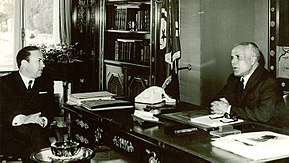
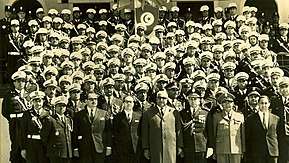
Interim Prime Minister in 2011

On 27 February 2011, in the aftermath of the Tunisian Revolution, Tunisian Prime Minister Mohamed Ghannouchi resigned following a day of clashes in Tunis with five protesters being killed. On the same day, acting President Fouad Mebazaa appointed Caïd Essebsi as the new Prime Minister, describing him as "a person with an impeccable political and private life, known for his profound patriotism, his loyalty and his self-sacrifice in serving his country." The mostly young protesters however continued taking their discontent to the streets, criticizing the unilateral appointment of Caïd Essebsi without further consultation.[8]
On 5 May accusations of the former Interior Minister Farhat Rajhi that a coup d'etat was being prepared against the possibility of the Islamist Ennahda Party winning the Constituent Assembly election in October, again led to several days of fierce anti-Government protests and clashes on the streets.[9] In the interview disseminated on Facebook, Rajhi called Caïd Essebsi a "liar", whose government had been manipulated by the old Ben Ali circles.[10] Caïd Essebsi strongly rejected Rajhi's accusations as "dangerous and irresponsible lies, [aimed at spreading] chaos in the country" and also dismissed him from his post as director of the High Commission for Human Rights and Fundamental Freedoms, which he had retained after being dismissed from the office as Interior Minister already on March 8. Nevertheless, Ennahda's president Rached Ghannouchi further fueled the suspicions, stating that "Tunisians doubt the credibility of the Transitional Government."[9]
After the elections in October, Caïd Essebsi left office on 24 December 2011 when the new Interim President Moncef Marzouki appointed Hamadi Jebali of the Islamist Ennahda, which had become the largest parliamentary group.[11]
2014 elections
Following his departure from office, Caïd Essebsi founded the secular Nidaa Tounes party, which won a plurality of the seats in the October 2014 parliamentary election.[12] He was also the party's candidate in the country's first free presidential elections, in November 2014.[13]
On 22 December 2014, official election results showed that Essebsi had defeated incumbent President Moncef Marzouki in the second round of voting, receiving 55.68% of the vote.[14] After the polls closed the previous day, Essebsi said on local television that he dedicated his victory to "the martyrs of Tunisia".[15]
President of Tunisia
.jpg)
Essebsi was sworn in as President on 31 December 2014 at the age of 88. He vowed on that occasion to "be president of all Tunisian men and women without exclusion" and stressed the importance of "consensus among all parties and social movements".[16]
On 3 August 2016, Essebsi appointed Youssef Chahed as a prime minister as the parliament withdrew confidence from Habib Essid's government.[17]
In 2017 he called for legal amendments to the inheritance law to ensure equal rights for men and women, and he called for Tunisian women to be able to marry non-Muslims, which he believes is not in direct conflict with Sharia or the Tunisian constitution.[18]
In 2018 he proposed a revision of the electoral law which, according to him, contains many shortcomings going against the principles of the revolution.[19]
On 13 August 2018, he promised olso to submit a bill to parliament soon that aims to give women equal inheritance rights with men, as debate over the topic of inheritance reverberated around the Muslim world.[20]
Concerning the economic crisis of Tunisia, he declares that the year 2018 will be difficult but the hope of economic revival is still possible. [21]
Honours and Decorations
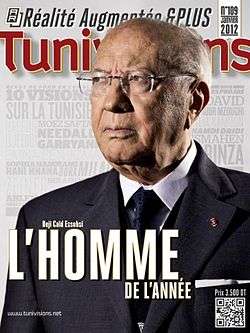
Tunisian national honours

- Grand Master & Grand Collar of the Order of Independence (automatic upon taking presidential office)
- Grand Master & Grand Collar of the Order of the Republic (automatic upon taking presidential office)
- Grand Master & Grand Cordon of the National Order of Merit (automatic upon taking presidential office)
Foreign honors



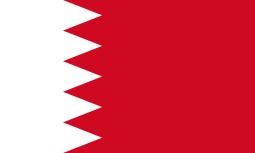

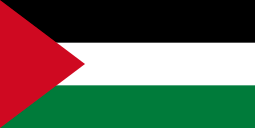


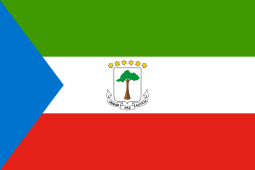
Awards and recognition
- Honorary Degree from Paris-Sorbonne University (2015)
- Founder’s Award of International Crisis Group (2015)
- Medal of Arab tourism (2017)
- Tunisian Politician of the Year (2017)
- Leadership Award of Global Hope Coalition (2018)
Publications
- Bourguiba : le bon grain et l'ivraie, éd. Sud Éditions, Tunis, 2009
- La Tunisie : la démocratie en terre d'islam (with Arlette Chabot), éd. Plon, Paris, 2016
References
- ↑ Sayed Mohamed Mahdi al Tajir, The International Who's Who of the Arab World (1978), page 137.
- ↑ "Tunisian PM Mohammed Ghannouchi resigns over protests", BBC News, 27 February 2011.
- ↑ Tarek Amara, "Tunisian prime minister resigns amid protests", Reuters, 27 February 2011. Archived 19 January 2012 at the Wayback Machine.
- ↑ Mohamed El Aziz Ben Achour, Catégories de la société tunisoise dans la deuxième moitié du XIXe siècle, éd. Institut national d'archéologie et d'art, Tunis, 1989 (in French)
- 1 2 Ridha Khefi, "Béji Caïd Essebsi", Jeune Afrique, 13 March 2005 (in French)
- 1 2 3 "President Essebsi, a lifetime in Tunisia politics". Euronews. 22 December 2014. Archived from the original on 22 December 2014. Retrieved 22 December 2014.
- ↑ "Essebsi retrouve ses racines à Hammam-Lif!" (in French). Espace Manager. 20 October 2014. Archived from the original on 24 December 2014. Retrieved 24 December 2014.
- ↑ Guidi, Francesco (1 March 2011). "Tunisian Prime Minister Mohammed Gannouchi resigns". About Oil. Retrieved 13 November 2014.
- 1 2 Guidi, Francesco (9 May 2011). "Tension returns to Tunisia with protests against the Transitional Government". About Oil. Retrieved 13 November 2014.
- ↑ «Farhat Rajhi fonce, tête baissée, pour l'élection présidentielle», Business News, 6 May 2011.
- ↑ Mzioudet, Houda (14 December 2011), "Ennahda's Jebali Appointed as Tunisian Prime Minister", Tunisia, archived from the original on 17 January 2012, retrieved 21 December 2011
- ↑ "Tunisia's Essebsi: The 88-year-old comeback kid". 2014-12-31.
- ↑ Monica Marks (29 October 2014). "The Tunisian election result isn't simply a victory for secularism over Islamism". Archived from the original on 3 November 2014. Retrieved 9 November 2014.
- ↑ "Essebsi elected Tunisian president with 55.68 percent". Reuters. 22 December 2014. Archived from the original on 22 December 2014. Retrieved 22 December 2014.
- ↑ "Tunisia election: Essebsi claims historic victory". BBC News. 22 December 2014. Archived from the original on 22 December 2014. Retrieved 22 December 2014.
- ↑ "Tunisian secular leader Essebsi sworn in as new president", Reuters, 31 December 2014.
- ↑ "How the new government plans to save Tunisia". Al-Monitor. 2016-08-18. Retrieved 2017-01-02.
- ↑ "We are an example to the Arab world': Tunisia's radical marriage proposals". 2011-11-28. Retrieved 2017-09-04.
- ↑ "Pourquoi Béji Caid Essebsi veut faire amender la loi électorale". 2018-03-23. Retrieved 2018-04-04.
- ↑ "Tunisian president backs inheritance equality for women despite opposition". 2018-08-03.
- ↑ "Viewpoint: President Beji Caid Essebsi, President of Tunisia". 2018.
External links

| Political offices | ||
|---|---|---|
| Preceded by Hassen Belkhodja |
Minister of Foreign Affairs 1981–1986 |
Succeeded by Hédi Mabrouk |
| Preceded by Slaheddine Baly |
President of the Chamber of Deputies 1990–1991 |
Succeeded by Habib Boularès |
| Preceded by Mohamed Ghannouchi |
Prime Minister of Tunisia 2011 |
Succeeded by Hamadi Jebali as Head of Government |
| Preceded by Moncef Marzouki |
President of Tunisia 2014–present |
Incumbent |
